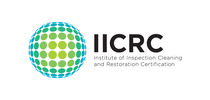Call for help?
1300 762 02124/7 Service availability!
Ready to Serve You Day or Night

If you have mould in your home, you know how hard it is to get rid of—and how much damage it can do.
Mould grows on surfaces like wood and wallpaper, but it can also grow inside the walls of your home. If you don’t deal with it quickly, mould can spread throughout the entire house.
When mould comes in contact with a surface, it releases spores that can float through the air and cause breathing problems and allergies. Mould also produces toxic chemicals that can cause permanent damage to your health. If you suffer from a serious lung disease like asthma or COPD, mould can be life-threatening!
The answer is yes, you can remove mould with vinegar—but it depends on the amount of mould, as well as what surface it’s growing on.
Here’s how to decide whether or not vinegar is the right solution for you.

Studies have shown that cleaning with a damp cloth and vinegar solution can be an effective method of cleaning mould from your home.
“Acetic acid (vinegar) is an effective mycobactericidal disinfectant that should also be active against most other bacteria. ”Source: https://www.ncbi.nlm.nih.gov/pmc/articles/PMC3940030/
Using household vinegar can be a cheap solution to mould and mildew removal as the acetic acid in the vinegar has an antimicrobial effect on the fungi found in mould.
However, although vinegar is effective against common household moulds, it has been found to be less effective against other types of fungi and the airborne spores they release.

Yes, white distilled vinegar is the most effective commercially available vinegar solution found in most supermarkets.
The higher levels of acidity found in white vinegar kill more bacteria than other types of vinegar such as brown, apple cider, and wine vinegar.

It is important to first discover the source of the mould problem and what is causing the increased moisture in the affected area. Without addressing the source of the mould problem, the mould will simply grow back over time.
Never mix vinegar with bleach or hydrogen peroxide as it produces toxic chlorine gas which can irritate your eyes and skin.
Although mould can treat mould problems in most cases, there are some surfaces that vinegar can potentially cause damage.
These include:
Moulds are fungi that grow in places where there is moisture. You can find them around leaks, pipes, and window frames. To prevent mould, you need to keep the humidity in your house below 50 percent.

Other steps you can take to prevent mould include:
If vinegar is causing you any skin or respiratory issues, there are other natural mould removal alternatives you can find around your home.
Clove oil can be found at most chemists and is an effective natural alternative for killing mould spores.
However, it can be toxic to humans and animals if ingested and is not recommended for use on limestone or marble surfaces.
Instructions:
Baking soda or bicarb soda is effective against most household moulds; however, it does not kill mould on non-porous surfaces.
Instructions:
Tea tree oil can also be an effective solution for mould removal. Studies have shown that tea tree oil can be equally effective against mould as using 70% ethanol and vinegar.
Instructions:
If you have tried these methods and you still have signs of mould or mildew, there might be other issues causing a mould outbreak. It is best to contact a professional and seek advice on what you can do to address the problem and what may be causing it.

If you have a serious case of visible mould, you will likely have a serious case of hidden mould. A professional mould removal company uses the latest digital readers and technologies to locate this hidden mould.
If mould is not treated quickly by a qualified expert, it can cause serious health problems for you and your family.
Our expert technicians will inspect your property, locate the mould effected areas, treat the source of the problem, and make a prevention plan to free your home of mould.
Give the mould removal experts a call on 07 5546 8608 or get a FREE quote today!
The first step is to look out for your own safety and those inside the property. Turn off water at...
Are you concerned about mould in your home or workplace? Mould growth can pose serious health risks and damage your...
If your property has suffered from flood damage due to Cyclone Alfred, South QLD Restoration is here to provide expert...
Call Us Anytime
1300 762 021Submit this information and we will send you the cost for the service.







